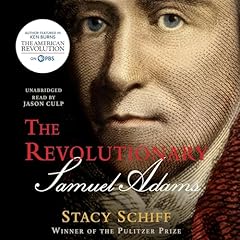
Unfriendly to Liberty
Loyalist Networks and the Coming of the American Revolution in New York City
No se pudo agregar al carrito
Add to Cart failed.
Error al Agregar a Lista de Deseos.
Error al eliminar de la lista de deseos.
Error al añadir a tu biblioteca
Error al seguir el podcast
Error al dejar de seguir el podcast
 Exclusivo para miembros Prime: ¿Nuevo en Audible? Obtén 2 audiolibros gratis con tu prueba.
Exclusivo para miembros Prime: ¿Nuevo en Audible? Obtén 2 audiolibros gratis con tu prueba.Compra ahora por $21.00
-
Narrado por:
-
Ray Montecalvo
In Unfriendly to Liberty, Christopher F. Minty explores the origins of loyalism in New York City between 1768 and 1776, and revises our understanding of the coming of the American Revolution.
Through detailed analyses of those who became loyalists, Minty argues that would-be loyalists came together long before Lexington and Concord to form an organized, politically motivated, and inclusive political group that was centered around the DeLancey faction. Following the DeLanceys' election to the New York Assembly in 1768, these men, elite and nonelite, championed an inclusive political economy that advanced the public good, and they strongly protested Parliament's reorientation of the British Empire.
For New York loyalists, it was local politics, factions, institutions, and behaviors that governed their political activities in the build up to the American Revolution. Indeed, local political alignments that were formed in the imperial crises of the 1760s and 1770s provided a critical platform for the divide between loyalists and patriots in New York City. Political and social disputes coming out of the Seven Years' War, more than republican radicalization in the 1770s, forged the united force that would make New York City a center of loyalism throughout the American Revolution.
The book is published by Cornell University Press. The audiobook is published by University Press Audiobooks.
"An excellent book...should reshape our sense of the foundations of US political culture." (Liam Riordan, University of Maine)
"Dazzling research, sharp insights, and gripping narrative...provides a new vantage point..." (Benjamin L. Carp, Brooklyn College)
"Offers a fascinating and fine-grained explanation of the process by which the city's heated partisan politics turned into irreconcilable differences." (Serena Zabin, Carleton College)
©2023 Cornell University (P)2023 Redwood AudiobooksLos oyentes también disfrutaron:




















Las personas que vieron esto también vieron:

Minty has used numerous frequently overlooked sources, such as voting records and lists of attendees at political celebrations, to explore the growth of what he calls the De Lancey social and political associationalism. Minty explains how it was the De Lanceys who first encouraged popular political participation in New York as a way to challenge and defeat the patrician dominance of the Livingstons. As a result, the De Lanceys’ associations included white men of all ranks, nationalities, occupations and religions.
The De Lanceys’ opposition to British imperial policy was principled, but moderate, and they were not able to control the more radical responses to Parliament. Further, unlike more radical New Yorkers, they did not make common cause with residents of other colonies, leaving them isolated as the imperial crisis deepened.
Minty has made a valuable contribution to our understanding of the prelude to the Revolution in New York. The book, however, leaves several questions unanswered, which perhaps is a reflection on the nature of Minty’s sources. Such questions include:
1. What caused the original antipathy of Alexander McDougall to the De Lanceys?
2. Why did men like Isaac Sears switch allegiance from the De Lanceys to McDougall?
3. Most important, why did De Lancey and so many others, all of whom had opposed the authoritarian imperialism of Britain, choose that as presumably the lesser of two evils, when many other members of their “Club” stayed, and even prospered, in America?
A Good Beginning
Se ha producido un error. Vuelve a intentarlo dentro de unos minutos.
Fascinating look into loyalist America before/during the revolution
Se ha producido un error. Vuelve a intentarlo dentro de unos minutos.


